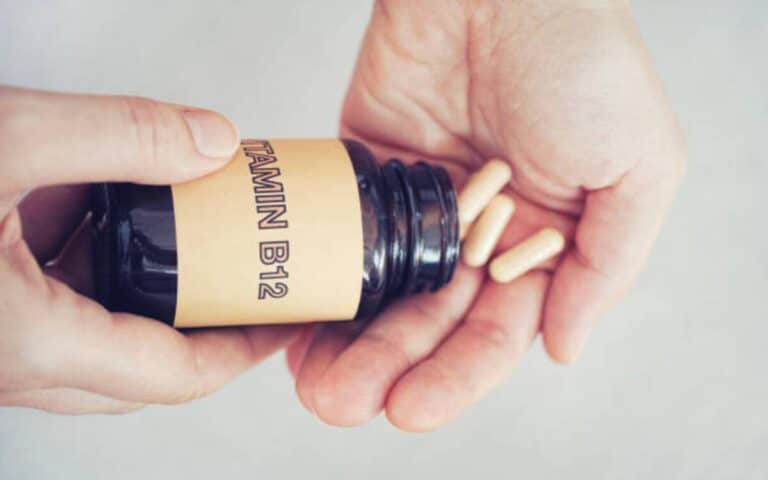The Best Fluffy Pancakes recipe you will fall in love with. Full of tips and tricks to help you make the best pancakes.

Vitamin B12 is an essential nutrient that plays a vital role in many aspects of health in adults. This comprehensive Vitamin b12 dosage for adults guide will cover everything you need to know about the recommended dosages of vitamin B12 for adults.
The benefits it provides, factors that affect how much you need, and the potential side effects of too much or too little vitamin B12.
In the pursuit of vitality and well-being, understanding the right dosage of Vitamin B12 is a key factor.
Whether you’re a seasoned wellness advocate or just embarking on your journey to a healthier lifestyle, this article is your compass to navigate the intricacies of Vitamin B12 supplementation for adults.
The Five Best Joint and Cartilage Supplement
Let’s take a quick look at some of the top 5 most effective Stiff joints, ligaments, tendons, and muscle supplements. Whether it’s due to aging, injury, or chronic conditions, the constant discomfort and limited mobility can leave you feeling frustrated and hopeless.
Top 5 Best Joint and Cartilage Supplement of 2024 That Works
( Based On Criteria For Evaluation )
Best Overall: Joint Hero
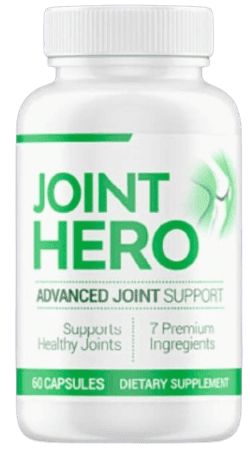
Natural ingredients Clinically Shown To Protect Joint Tissue
- Good-quality ingredients
- Block haywire immune markers
- Feel years younger!
- Money-Back Guarantee
- Encourages healthy joints, cartilage, and bone
- Company reputation & 24-Hour Support
- 70% of customers express satisfaction
- Powerful Testimonials
#2Pick Golden Revive Plus
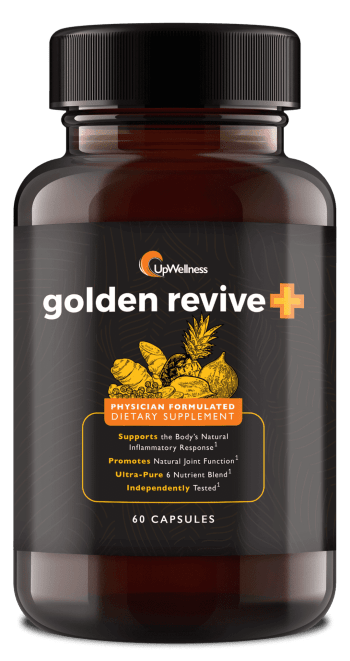
All-natural solution for stiff joints, ligaments, tendons, and muscles
- High-quality ingredients
- Protect synovial joints from degradation
- Encourage healthy joints, cartilage, and bone
- Support healthy joint flexibility and mobility
- Reduce swelling and discomfort
- Money-Back Guarantee
- Encourages healthy joints, cartilage, and bone
- Company reputation & 24-Hour Support
- 98% of customers express satisfaction
- Powerful Testimonials
#3 Pick: Joint Support Plus
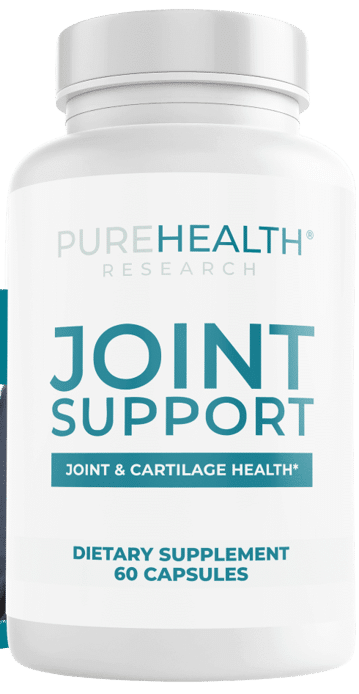
NEW Technological Breakthrough! Natural Support for Flexible Joints
- High-quality ingredients
- Soothe aches and tenderness
- Promote Pain-Free Mobility
- Support healthy joint flexibility and mobility
- Feel years younger!
- Money-Back Guarantee
- Encourages healthy joints, cartilage, and bone
- Company reputation & 24-Hour Support
- 89% of customers express satisfaction
- Powerful Testimonials
#4 Pick: Joint Genesis
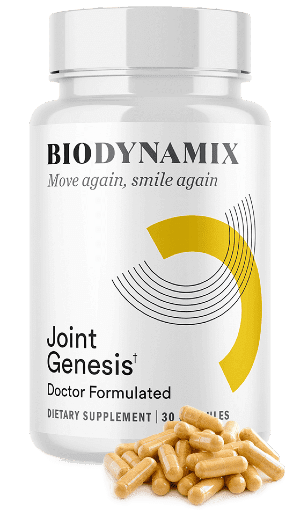
100% natural ingredients derived from superfoods
- High-quality ingredients
- Soothe aches and tenderness
- Improve walking and standing scores
- Block haywire immune markers
- Feel years younger!
- Money-Back Guarantee
- Encourages healthy joints, cartilage, and bone
- Company reputation & 24-Hour Support
- 78% of customers express satisfaction
- Powerful Testimonials
Understanding Vitamin B12
Vitamin B12, also known as cobalamin, is a water-soluble essential vitamin. It plays a critical role in several bodily functions including:
- Red blood cell formation and proper functioning of the nervous system
- DNA synthesis and regulation
- Energy production
- Brain and neurological health
Vitamin B12 is unique in that it contains cobalt, which gives this vitamin its name. This vitamin can only be produced by certain bacteria and archaea, so it needs to be obtained from dietary sources or supplements.
Some key facts about vitamin B12:
- Natural food sources include meat, fish, eggs, dairy, and fortified foods.
- It is stored in the liver and other tissues.
- Vitamin B12 is bound to protein in food sources. It requires separation from the protein by stomach acid and digestive enzymes.
- The absorption of B12 requires an intrinsic factor, a protein made in the stomach.
- Deficiency is common, especially in older adults due to decreased absorption.
- Symptoms of deficiency include fatigue, neurological issues, and megaloblastic anemia.
- Daily dosage recommendations vary based on age.
- High doses are not known to cause serious side effects but can lead to acne and itchy skin.
Also Read: How To Heal Bone-on-Bone Joint Pain Permanently
Importance of Vitamin B12 for Adults
Vitamin B12 plays a vital role in keeping adults healthy and functioning optimally. Here are some of the key benefits of getting adequate B12:
- Formation of red blood cells and prevention of anemia: Vitamin B12 is necessary for the proper production and regeneration of red blood cells. Deficiency can lead to a condition called megaloblastic anemia.
- Neurological function and brain health: B12 is essential for myelin formation, which protects nerve cells. Deficiency can cause neurological changes including depression, memory loss, and dementia.
- DNA and cellular health: Vitamin B12 aids in DNA synthesis. This is critical for cellular function and growth.
- Energy levels and exercise: B12 plays a role in energy production pathways. Lack of B12 can lead to fatigue and decreased endurance.
- Heart health: Adequate B12 intake is associated with lower homocysteine levels, reducing risk of heart disease.
- Healthy pregnancies: Vitamin B12 is crucial for fetal neurological development and preventing birth defects of the brain and spine.
Given the wide range of benefits above, it’s clear that getting sufficient vitamin B12 is vital for adults, especially older adults, pregnant women, and vegans or vegetarians.
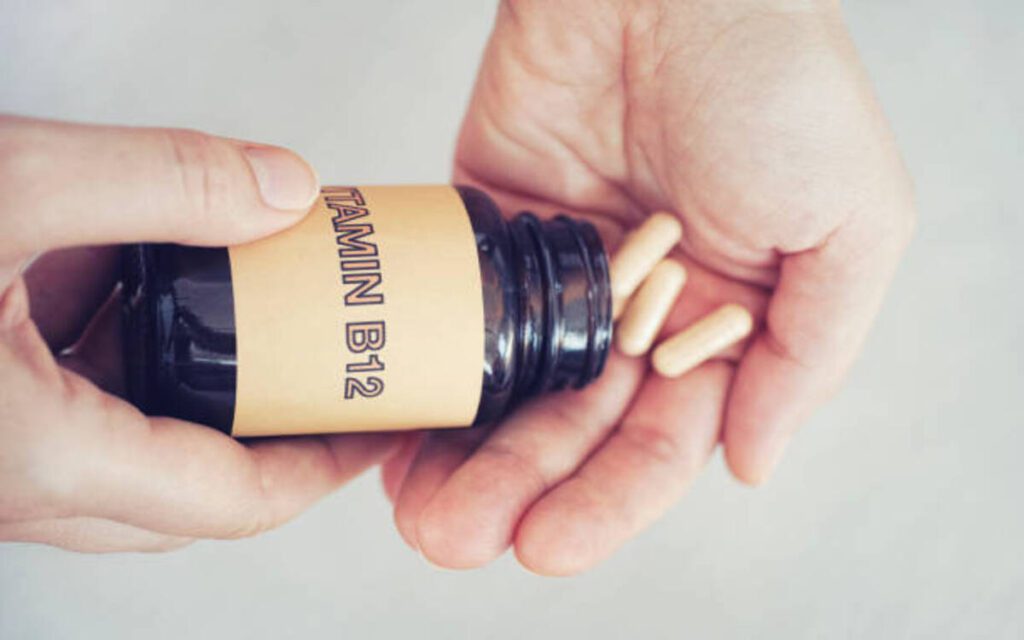
Recommended Daily Dosage of Vitamin B12 for Adults
The recommended daily allowance (RDA) for vitamin B12 varies based on age:
- Adults 19+ years: 2.4 mcg
- Pregnant females: 2.6 mcg
- Lactating females: 2.8 mcg
However, many experts suggest that higher doses in the range of 25-100 mcg per day are optimal for adults to promote health and prevent deficiency.
The upper limit for safe vitamin B12 intake is set much higher since it is a water-soluble vitamin and any excess is excreted in urine. The daily upper limit is:
- Adults 19+ years: 1,000 mcg
For therapeutic purposes, such as treating a deficiency, vitamin B12 dosages may be significantly higher based on advice from a medical professional. This can include oral supplements, sublingual tablets, nasal sprays, injections, or patches.
Also Read: Secret To Keep Your Blood Below 100 mg/dl At All Time
General Dosage Guidelines Based on Condition:
- Maintaining B12 levels: 10-100 mcg per day
- Treating mild deficiency: 1000 mcg oral or nasal spray daily
- Moderate deficiency: 1000-2000 mcg injections per week
- Severe deficiency: Initial loading doses of 1000 mcg B12 injections daily for up to 2 weeks.
Again, it’s ideal to have vitamin B12 levels tested by a doctor and seek advice on therapeutic dosing tailored to your needs.
Factors Influencing Vitamin B12 Dosage and How Much Vitamin B12 Is Required For Different Age Groups
There are several factors that determine how much vitamin B12 an individual needs each day:
1. Age
- Older adults over 50 have a higher risk of B12 deficiency since their bodies have a harder time separating vitamin B12 from food and absorbing it properly.
- Up to 30% of adults over age 50 show signs of seriously low B12 levels.
- Older adults should aim for B12 intake at the higher end of recommendations to maintain optimal levels.
2. Medical Conditions
Certain gastrointestinal conditions, autoimmune disorders, and other chronic diseases can impair the absorption of vitamin B12 from foods and supplements. These individuals need extra B12 either through high oral doses or injections to meet their needs.
3. Medications
Long-term use of certain drugs like proton pump inhibitors, histamine blockers, and metformin can interfere with B12 absorption and increase the risk of deficiency. Those taking these medications may require B12 supplements.
4. Vegetarian or Vegan Diets
Since vitamin B12 is naturally found in animal products, vegetarians and especially vegans have an increased likelihood of deficiency. Plant-based eaters should take a B12 supplement or eat fortified foods.
5. Pregnancy and Breastfeeding
Pregnant and nursing mothers need higher amounts of B12 to support the development of the baby. Supplements or extra-fortified foods may be recommended.
6. Other Nutrient Deficiencies
Having low levels of iron, vitamin C, calcium, and folate can potentially cause poor utilization of vitamin B12 in the body. Correcting deficiencies in these nutrients can improve B12 absorption.
Also Read: #1 Treatment For Erectile Dysfunction That Fix Erection Problems and Delivered Real Result
Symptoms of Vitamin B12 Deficiency
Some common symptoms that can occur if vitamin B12 levels become too low include:
- Fatigue, weakness, or lightheadedness
- Paleness, jaundice
- Rapid heart rate or shortness of breath
- Numbness or tingling in hands and feet
- Balance problems or clumsy movements
- Memory loss or confusion
- Depression, mood changes, irritability
- Vision changes or eye twitching
- Gastrointestinal issues like nausea, appetite loss
- A sore tongue or bleeding gums
Deficiency can also lead to neurological changes and damage, anemia, pregnancy complications, and poor growth in children.
In infants and toddlers, B12 deficiency can result in developmental delays and regression of milestones.
See a doctor promptly if you experience any symptoms potentially related to low B12 levels. Timely treatment can stop progression and reverse many effects.
Older Adults Need Vitamin B12 Injections To Treat Vitamin B12 Deficiency
As we age, vitamin B12 deficiency becomes more common. It’s estimated that up to 30% of adults over 50 show signs of a B12 deficiency.
There are a few key reasons why older adults are at higher risk:
- Reduced stomach acid secretion, which impairs separation of B12 from proteins in food
- Lower production of intrinsic factor in the stomach, which is required to absorb B12
- Functional changes in digestive enzymes that release B12 from foods
- Certain medical conditions and medications more common in older age
Additionally, since the body’s ability to absorb vitamin B12 from food and supplements ingested orally declines with age, the most effective way to treat deficiency in older adults is with B12 injections.
Compared to oral vitamin B12 supplements, B12 injections bypass the gastrointestinal system and are absorbed directly into the bloodstream. This makes them far superior for increasing B12 status in older adults.
Some key advantages of vitamin B12 injections for seniors include:
- Dramatically improved absorption and bioavailability compared to oral supplements
- Rapid increases in B12 blood levels
- Requires lower doses of B12 to restore adequate status
- Effective for those with pernicious anemia or atrophic gastritis
- Can correct deficiency without the need for intrinsic factor
- Allows tissue storage levels of B12 to be replenished
- Helps reverse symptoms of B12 deficiency quickly
The standard protocol is to give 1000 mcg injections daily for one week, then weekly until levels normalize. This bypasses GI absorption issues and rapidly resolves deficiency.
For mild cases, a monthly injection of 1000 mcg may be adequate to maintain healthy B12 status long-term. More frequent or higher doses may be needed in cases of severe deficiency.
In summary, while oral B12 supplements have a role in meeting daily needs, B12 injections are clearly the most effective way of treating vitamin B12 deficiency in older adults.
Risks of Excessive Vitamin B12 Intake
Vitamin B12 is considered very safe, even at high supplemental doses. No tolerable upper intake level has been established since there have been no reports of toxicity or serious side effects.
However, some minor side effects are possible with excessively high doses of B12 supplements:
- Acne or rosacea breakouts
- Itchy skin or rash
- Anxiety, irritability, or mania
- Rapid heartbeat or palpitations
- Diarrhea or cramping
- Headaches
- Nausea or vomiting
Symptoms typically resolve when high doses are discontinued. Taking B12 supplements as recommended by a healthcare provider and not exceeding the upper limit of 1000 mcg per day can prevent any side effects.
There are also some concerns that a very high B12 intake could potentially mask a folate deficiency.
Folate and B12 work together in the body, so extreme amounts of one can hide a deficiency in the other.

Methods of Vitamin B12 Intake
There are a variety of ways for adults to obtain sufficient vitamin B12 through diet, fortified foods, and supplements:
Dietary Sources:
- Meat (beef, pork, lamb)
- Poultry (chicken, turkey)
- Fish and shellfish
- Eggs and dairy products
- Some mushrooms
Fortified Food Sources:
- Breakfast cereals
- Nutritional yeast
- Plant-based milk
- Soy products
- Meal replacements
Supplements:
- Multivitamins
- B-complex vitamins
- Individual B12 tablets or capsules
- Sublingual drops or sprays
- Nasal gels
- Injections – intramuscular or subcutaneous
- Transdermal patches
Oral supplements in doses up to 1000 mcg per day are typically recommended and well-absorbed.
Higher dose injections or other forms may be used therapeutically for those with absorption issues. Speak to a doctor to determine the best intake method for your needs.
Effect of Vitamin B12 on Overall Health
Adequate vitamin B12 levels are linked to benefits beyond those listed earlier in this article. Here is an overview of the positive effects vitamin B12 has on overall health:
- Supports metabolism and weight control: B12 plays a role in metabolizing fats and carbohydrates. This optimizes body weight and energy use.
- May boost mood and reduce risk of depression: Some studies link higher vitamin B12 intake to better mood, lower anxiety, and reduced depression risk.
- Supports healthy hair, skin, and nails: B12 contributes to the formation of the hair protein keratin and skin collagen. This promotes hair, skin, and nail health.
- May boost eye health: B12 deficiency is linked to optic neuropathy and vision problems. Supplements may help improve eye health and prevent glaucoma.
- May increase longevity: Higher B12 levels are associated with increased lifespan and reduced overall mortality risk, especially in those over 60.
- May enhance cognitive function: Vitamin B12 may help boost memory, focus, and concentration as people age b12 supplementation on cognitive function. It slows age-related cognitive decline.
- May reduce cancer risk: Folate and B12 supplementation is associated with lowered risk of certain cancers like colorectal, lung, and breast.
- Supports bone health: Vitamin B12 deficiency is linked to an increased risk of osteoporosis and fractures. Supplements may help maintain bone mineral density.
Given all these varied benefits, getting sufficient B12 intake clearly helps support optimal health and function as we age while preventing many chronic diseases.

How to Choose the Right Vitamin B12 Supplement
If you decide to take a vitamin B12 supplement to meet your needs, there are a few factors to consider when selecting the right type of supplement:
Different Forms of Vitamin B12 Supplements
- Cyanocobalamin: This is the most commonly available and affordable supplemental form of B12. It converts to active forms in the body and is effectively absorbed Alson known as absorb vitamin b12.
- Methylcobalamin: This is the active form already present in tissues. It may be preferable for those with absorption issues but is more expensive.
- Hydroxocobalamin: This is the typical form used for injections and has good bioavailability. It lasts longer in the body than cyanocobalamin.
- Adenosylcobalamin: This active form may potentially offer neurological benefits but has a very short half-life. It is not commonly used.
For most healthy adults, cyanocobalamin works well, is readily available, and is the most cost-effective. Check with a doctor if you have absorption issues.
Bioavailability and Absorption
Sublingual tablets, liquid drops, nasal sprays, patches, and injections can help improve absorption for those with medical conditions affecting B12 absorption from the gut. Discuss options with your physician.
Appropriate Dosage
Follow general dosage guidelines based on your age, health status, and condition. More is not necessarily better with B12 supplementation, so don’t exceed the upper limit unless medically advised.
Quality and Safety Standards
Choose reputable brands that follow Good Manufacturing Practices (GMP). Look for independent testing and labels indicating purity and quality.
Formulation and Additives
Avoid unnecessary fillers, binders, colors, and preservatives. Enteric-coated capsules can protect B12 from stomach acid for better absorption.
Cost and Value
Compare products and prices. Higher cost does not always mean better quality. Find an effective B12 supplement that fits your budget.
Consult With a Healthcare Professional
Check with your doctor before taking new supplements, especially in high doses. Follow prescribing guidelines for therapeutic supplementation.
Combining diet, fortified foods, and supplements in the right dosages can help ensure you meet your daily vitamin B12 needs.
Work with your healthcare team to find the best intake strategy for your individual health.
Conclusion on Vitamin b12 Dosage for Adults
Vitamin B12 is clearly an essential nutrient that is critical for staying healthy as an adult. From producing red blood cells to maintaining brain function, B12 plays many vital roles across all body systems.
The recommended daily allowance of 2.4 mcg is sufficient to prevent deficiency in healthy adults.
However, experts suggest that a slightly higher daily intake between 25-100 mcg is optimal for supporting health.
Older adults, vegans, and those with absorption issues or taking certain medications may need supplementation to meet their needs.
Meat, fish, eggs, dairy, and fortified foods are good dietary sources of B12. Supplements are also widely available in forms such as pills, sublingual tablets, nasal sprays, injections, and patches.
While high doses of B12 are considered quite safe, it’s best to not exceed the upper limit of 1,000 mcg per day unless medically advised.
Symptoms like fatigue, weakness, neurological changes, and megaloblastic anemia can occur if deficiency develops due to poor intake or absorption issues.
Getting adequate B12 levels tested regularly and addressing any deficiencies is crucial, especially for older adults.
With proper testing and supplementation as needed, maintaining a healthy vitamin B12 status is very achievable.
FAQs Frequently Asked Questions on Vitamin b12 dosage for adults
What are the recommended daily doses of Vitamin B12 for adults?
The recommended daily amount is 2.4 mcg although many experts suggest 25-100 mcg daily is optimal for health. Those over 50 or with absorption issues may require much higher doses.
What are the potential side effects of Vitamin B12 supplements?
Minor side effects like acne, itchiness, and digestive upset may occur with excessively high doses over 1000 mcg per day. Otherwise, B12 is considered very safe.
What are some common food sources of Vitamin B12?
Meat, poultry, fish, eggs, dairy products, and fortified foods like cereal and plant milk contain B12. Vegans need supplementation or fortified foods.
How do Vitamin B12 tablets differ from other forms of supplements?
Tablets need to dissolve and absorb through the gut so may not work as well for those with absorption issues compared to sublingual, nasal, or injectable B12.
What are the benefits of taking Vitamin B12 supplements?
Supplements can prevent and treat deficiency, and improve energy, brain function, mood, heart health, bone density, and more. They are crucial for those unable to get enough from diet alone.
Can high doses of Vitamin B12 be harmful to adults?
Doses under 1000 mcg per day are not known to cause harm. Amounts over this level may potentially lead to minor side effects but B12 is considered very low risk since excess is excreted.
References
- Harvard Health – Should I take vitamin B12?
- Cleveland Clinic – Vitamin B12 Deficiency
- MedlinePlus – Vitamin B12
- University of Rochester Medical Center – Vitamin B12
- NHS UK – Vitamins and Nutrition – Vitamin B12
- BMJ Best Practice – Vitamin B12 Deficiency
- Dragons Den Weight Loss Gummies UK Reviews – #1 Dragons Den Weight Loss Gummies, Ingredients, Price and Where to Buy -
- Dragons Den UK Weight Loss Pill Reviews Holly Willoughby Weight Loss – UK #1 Slimming Capsule? -
- Weight Loss Pills Dragons Den UK – How Older Women Lose Weight with UK #1 Weight Loss Capsules Safely, Quickly & Effectively -



